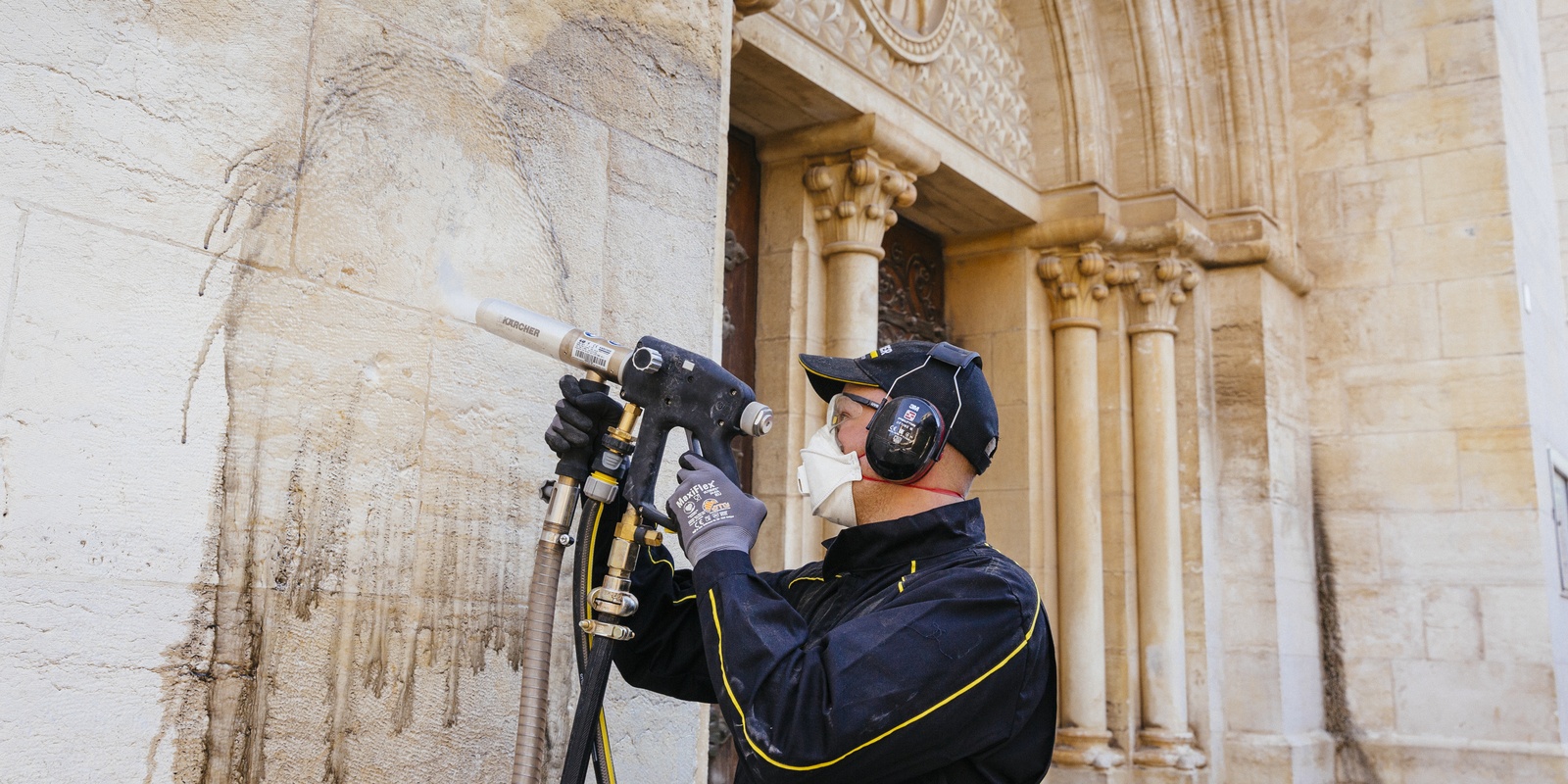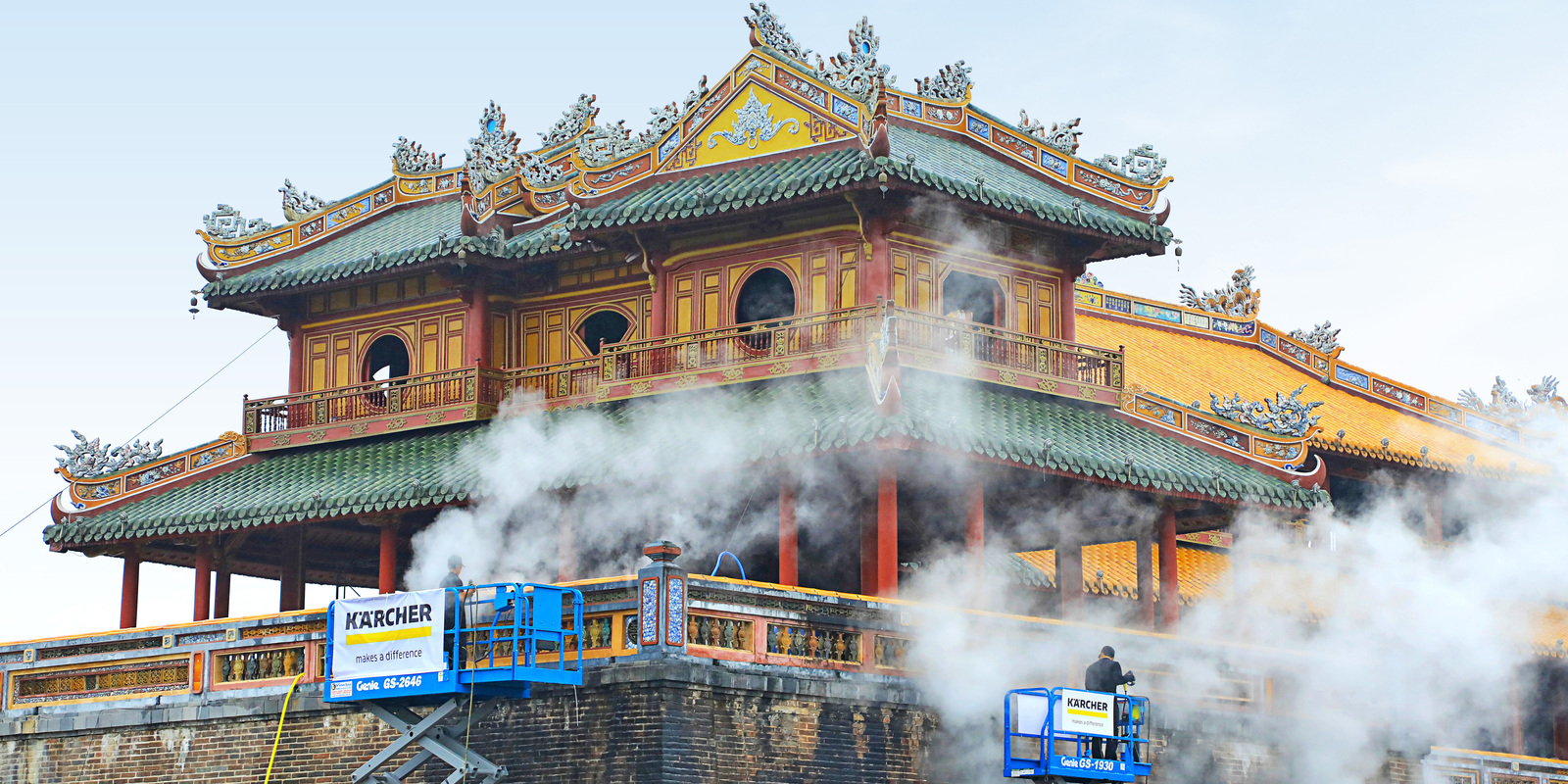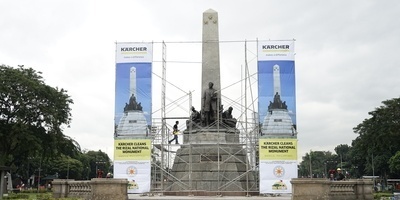San Agustín church in Manila cleaned of biological growth
The San Agustín church in the Philippines was cleaned of organic growth which, owing to the tropical climate with high air humidity, had covered the natural stone and corroded the surface.
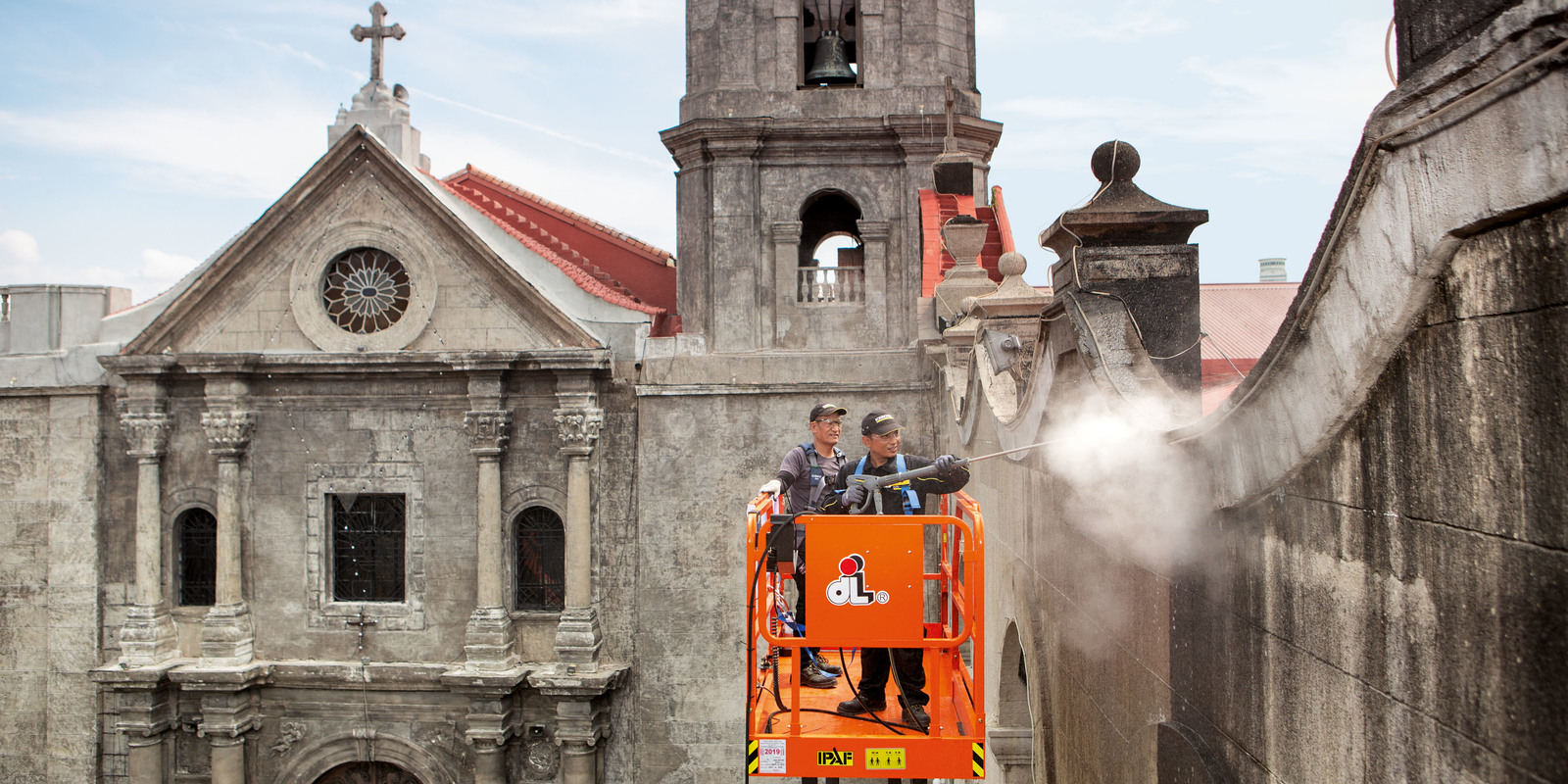
Hot-steam cleaning is one of the most effective and, at the same time, gentlest cleaning techniques for the cleaning and preservation of mineral-based building fabric.
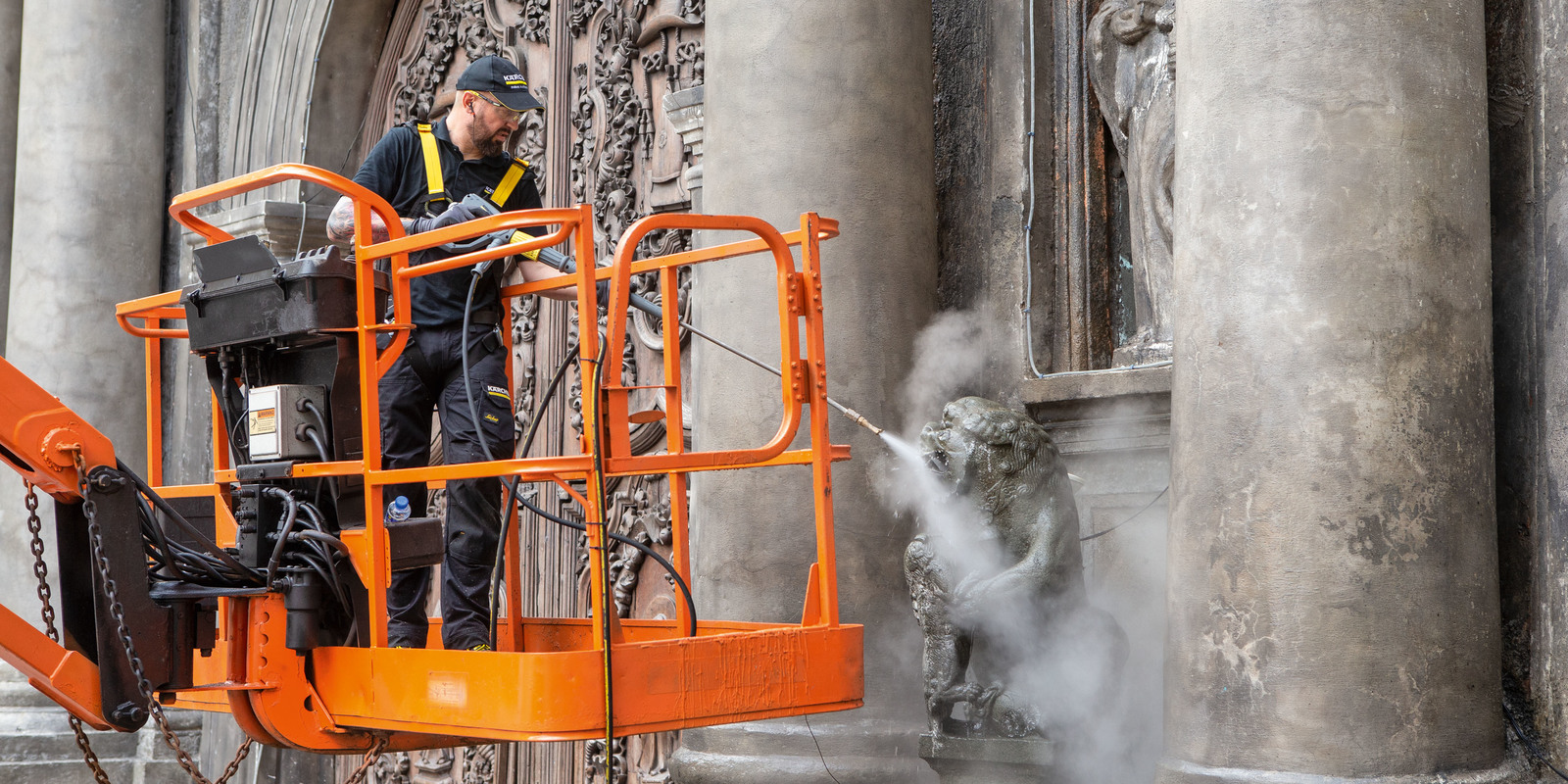
The technology used made it possible to completely dispense with chemicals.
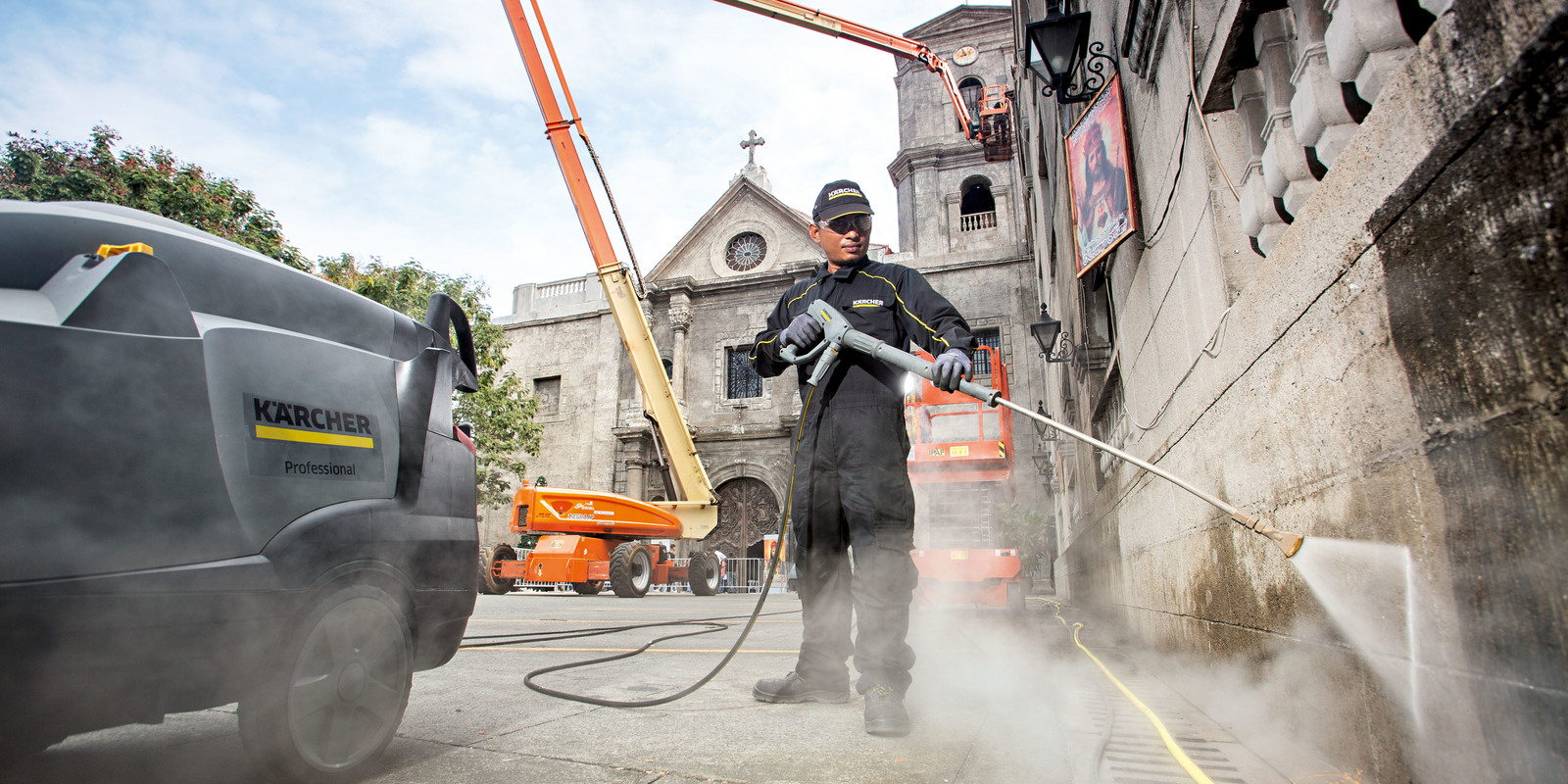
The steam delays the reappearance of biogenic growth, as also the spores that have penetrated deeper are destroyed by the high temperatures.
Gentle cleaning with hot steam
The outside areas and parts of the façade of San Agustín church were cleaned of organic growth which, owing to the tropical climate with high air humidity, had covered the natural stone and corroded the surface. The experts from Kärcher removed the biological growth with hot-water high-pressure cleaners using the gentle steam stage at 95 °C and a reduced pressure level of 0.5 bar.
“与我们的技术,我们可以去除藻类,苔藓,small plants and emissions pollution from the centuries-old limestone," explains Thorsten Möwes, the Kärcher cleaning expert who was responsible for carrying out the work on location. "We are delighted to have contributed to the preservation of this valuable building with our cleaning work," Möwes continues. This technology has made it possible to completely dispense with chemicals. In addition, the steam delays the reappearance of biogenic growth, as also the spores that have penetrated deeper are destroyed by the high temperatures. Hot-steam cleaning is one of the most effective and, at the same time, gentlest cleaning techniques for the cleaning and preservation of mineral-based building fabric.
The San Agustín Church of Manila
The church, which was constructed in 1607, is located within the city walls of the historic town of Manila and has been a UNESCO World Cultural Heritage site since 1993. It is the oldest Christian church in the Philippines.
San Agustín was constructed during the period of Spanish colonial rule, and is considered as one of the "baroque churches of the Philippines", together with three other churches. The current building from 1607 is the third to have been constructed at this site. The two previous buildings were made of bamboo and wood, and both burnt down just a few years after their construction.
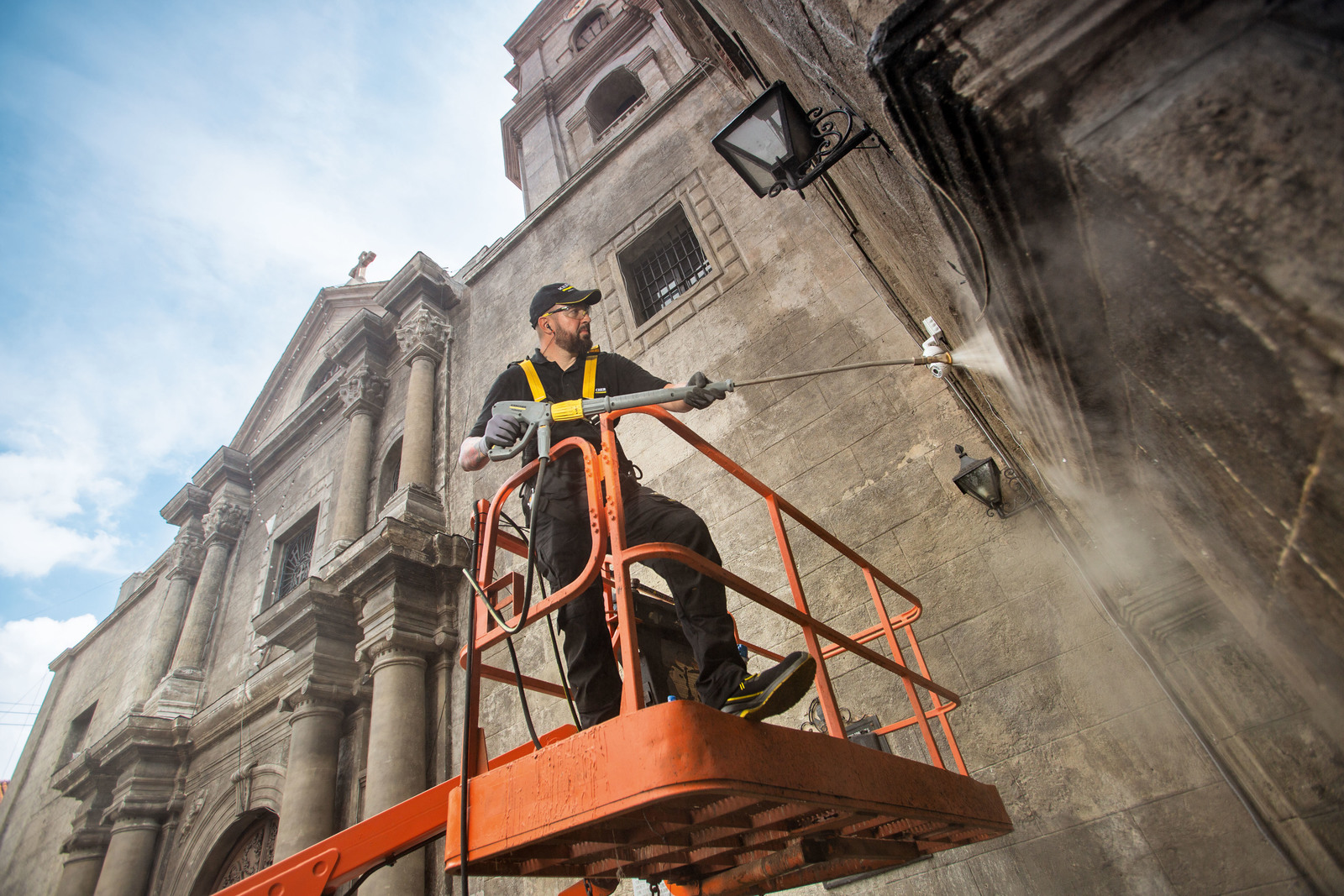
Facts at a glance
Country:Philippines
City:Manila
Soiling:Emission pollution, algae and mosses
Cleaning technology:Hot water high-pressure cleaning in gentle steam mode at 95 °C and a reduced pressure of 0.5 bar
Execution:November 2019


